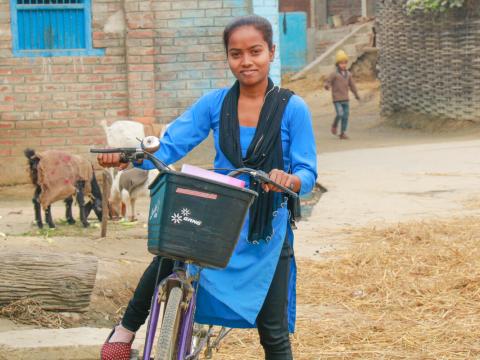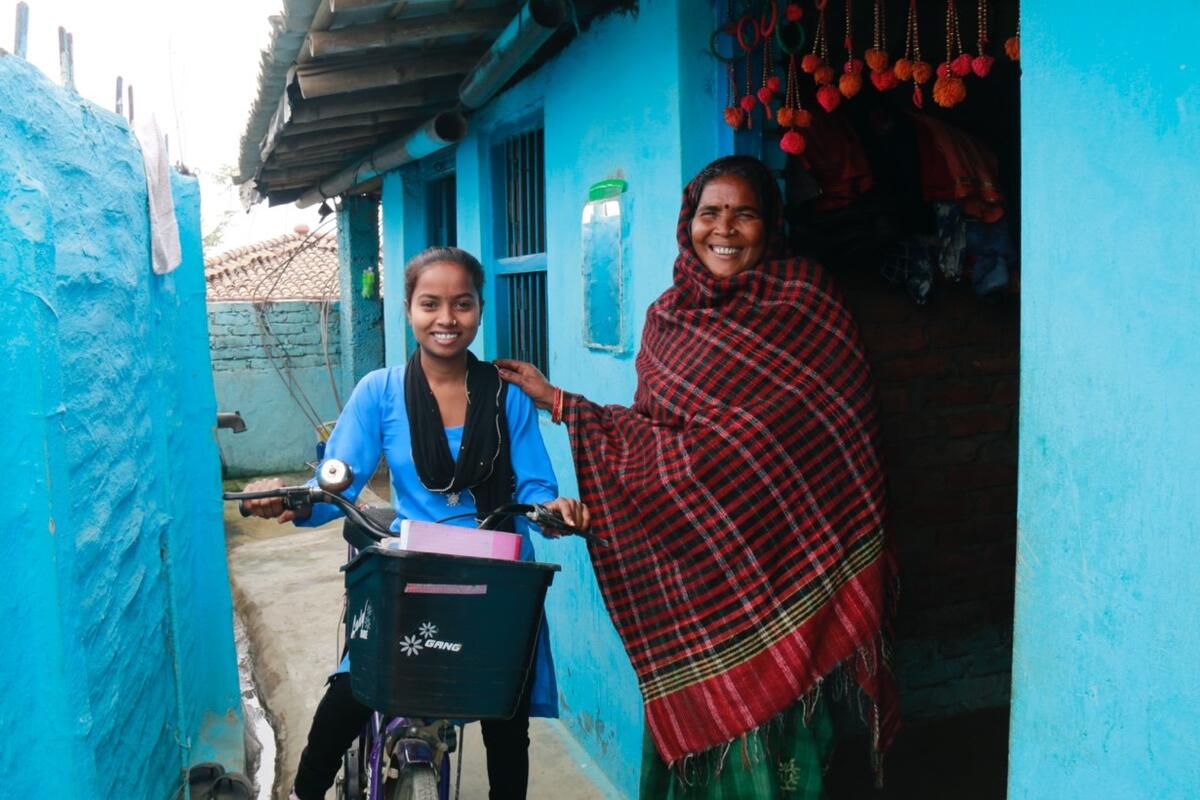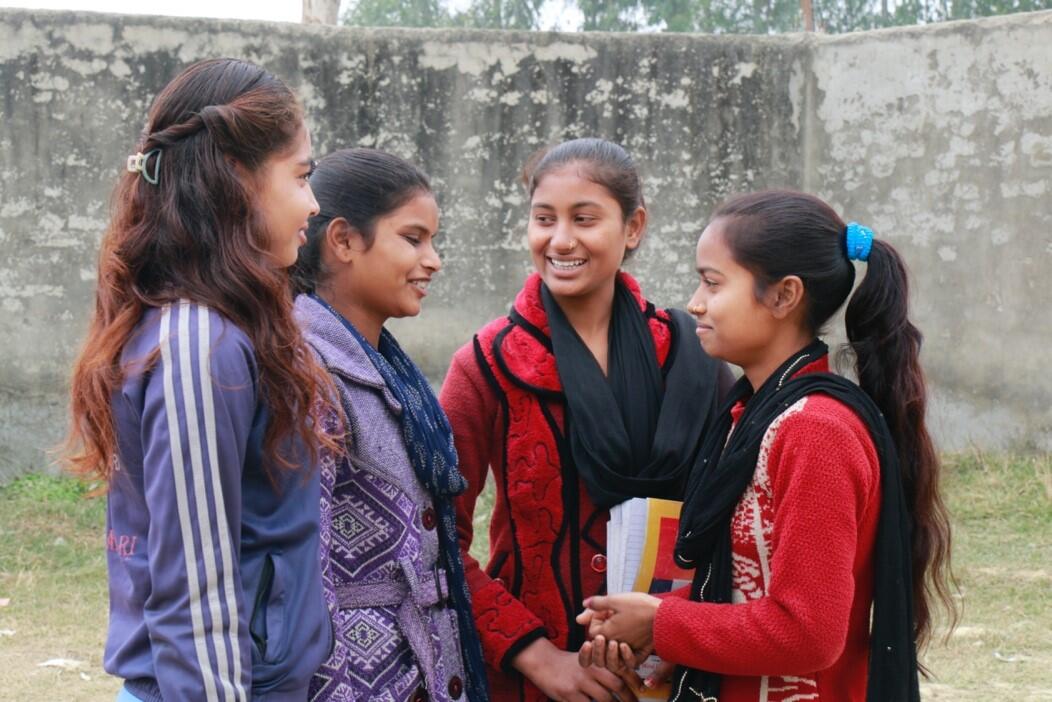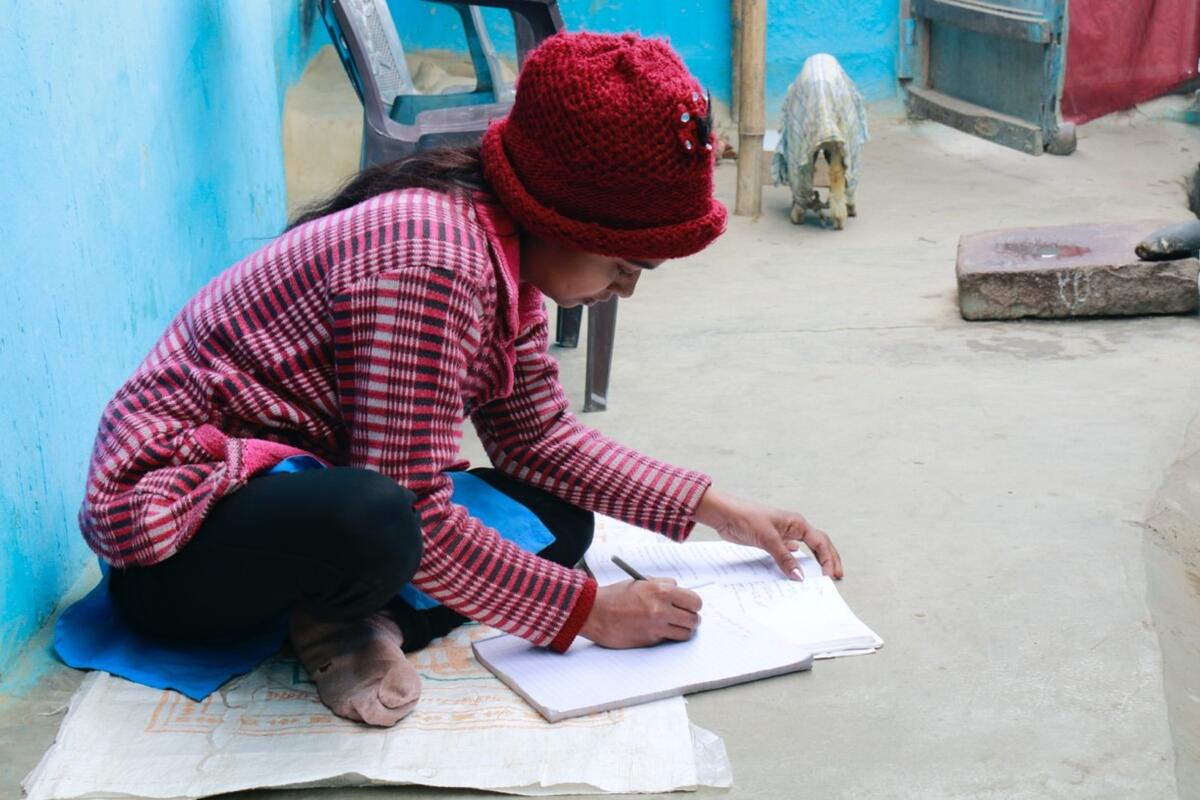Sunita never misses a day of school thanks to her bicycle

In August 2019, when Sunita* and her family were told by World Vision International Nepal and its partner NGO Rastriya Rojgar Prawardhan Kendra (RRPK) that Sunita was about to receive a bicycle, their happiness knew no bounds.
Sunita was one of the 253 girls from vulnerable families, studying in Grade-7 in Sarlahi district, who were selected to receive bike.
The initiative aims to ensure the girls are able to regularly attend school, be punctual and to continue their education.
“I can finally reach school on time. Will never miss a day at school!” Sunita said.
Her school is located 7 kilometres away from her home. Each day, she would have to walk around 45 minutes to school in the morning and 45 minutes more to get back home in the evening.
On rainy days, the road would become slick with thick mud, making her journey even harder.

Her parents, who worked as daily wage workers, could not afford to offer her with an alternative means of transportation.
Every day, she would wake up early, help her mother in the kitchen, have her breakfast and set off to school at around 9:00am.
“I would be late for school most of the days. I would also be so tired of all the walking that it would be impossible for me to concentrate in class,” she remembered.
When the day finally arrived for Sunita to receive the bike, she was over moon. She could not wait to see what it looked like.
When she was handed the bicycle at the neighbouring municipality office, Sunita was thrilled.
Purple with a black-coloured basket fixed at the front, she excitedly looked at her bicycle - the only thought that kept running through her mind was the image of her riding it to school with her books placed in the front basket.
Her parents were very happy for Sunita.
“We know how much of a struggle it was for you to walk every day to school. We were unable to provide you with a form of transport. But now that you have one, we want you to go to school every day and study hard for your future,” Sunita’s parents told her.
She no longer has to do any household chores. All they want is for her to get a proper education.

A year and a half later, Sunita, now 16, is a grade 8 student. Her father migrated to Saudi Arabia for work just before the COVID-19 crisis struck.
While her father is away, her mother Mira* takes care of their three children - Sunita and her two brothers. Now, Sunita makes it to school on time and never misses any classes.
It takes her just 10 minutes to get there on her beloved bicycle. She’s able to be attentive in class and gets involved in all the classroom activities.
“A year ago, I remember how she used to appear at the classroom door panicked and late. When I would ask her why she continued to be late to school every day, she would burst into tears,” her teacher Bindeshwor says.
Sunita would say that she was tired. It took her so long to reach school that she would end up with a terrible ache in her legs due to all the walking.
“She has never been late to school since she received the bicycle. I’m proud to say her studies have drastically improved too,” Bindeshwor adds.
Sunita’s mother Mira is relieved that her daughter’s struggles to get an education have now lessened.

After receiving the bike, Sunita joined tuition classes. She makes sure to study at least two hours at home every day.
In her free time, she plays with her friends, helps her 14-year-old younger brother with studies or talks to her father and older brother, who are away from home for work.
This initiative has motivated Sunita. As a result, she is now encouraged to focus on her studies.
She wants to continue her education, so that she can fulfil her dream of becoming a teacher.
In August 2019, 253 girls studying in grade 7 in community schools coming from vulnerable families were provided with bicycles through Strengthening Inclusive Education (SIKAI) Project.
The SIKAI project aims to ensure equal access and participation of the most vulnerable children in education and equitable learning outcomes in basic education. It envisions integrating the education component to strengthen the education system making it inclusive, raising community awareness, improving the school environment, equipping classrooms with supplementary and inclusive learning materials, accessible and safe school infrastructure, schools with WASH facilities and play grounds, improving function and governance of inclusive education and child protection systems.
*Sunita and her mother’s names have been changed for their protection.